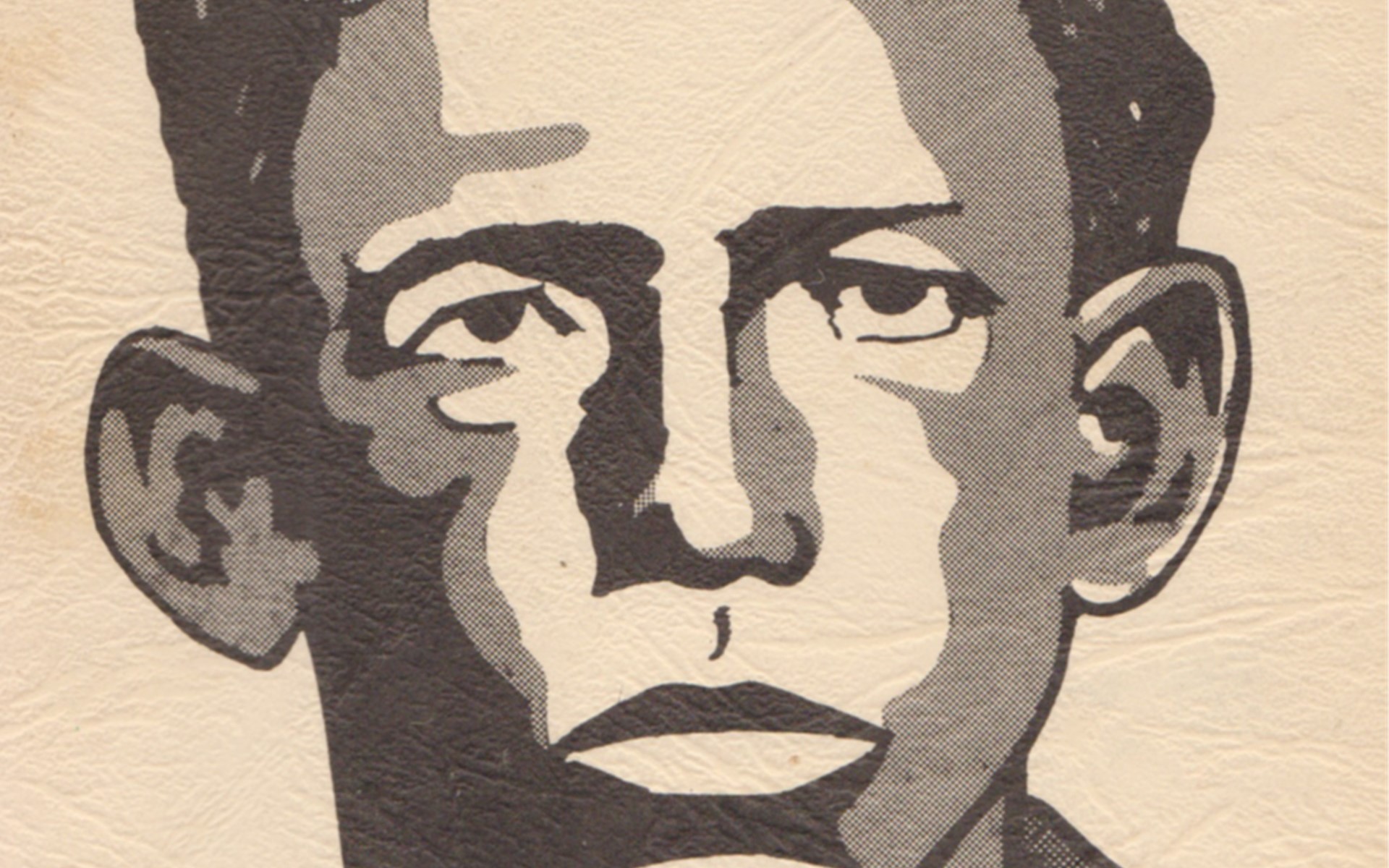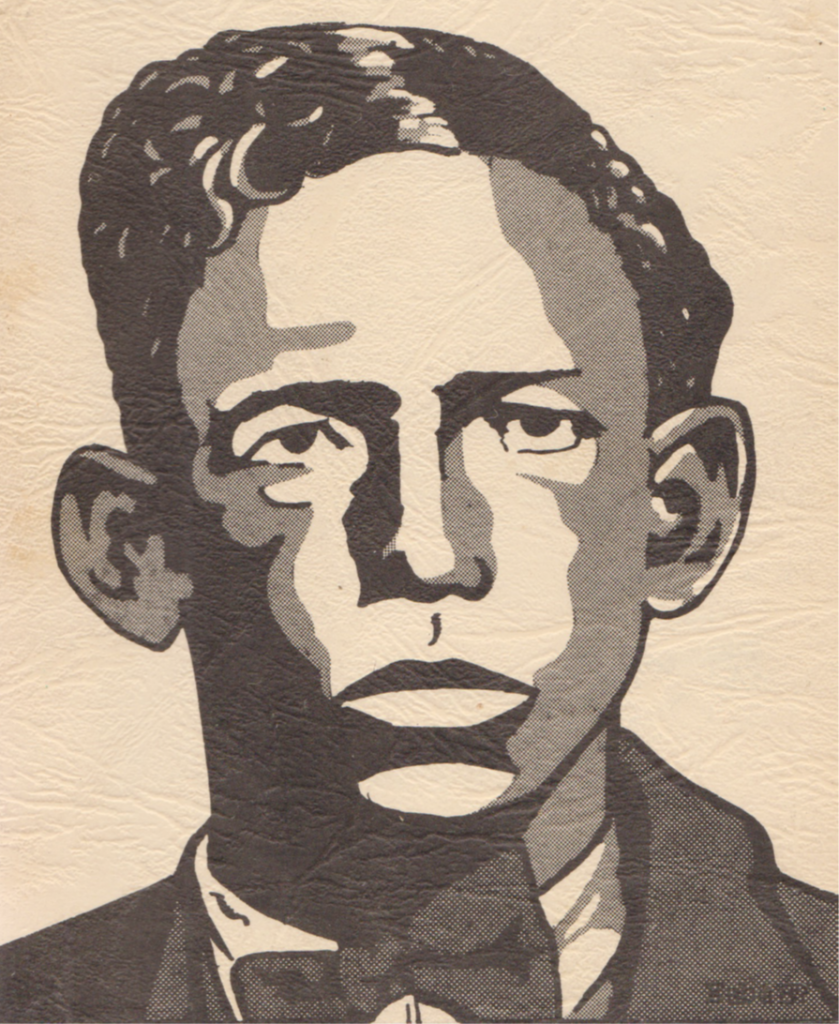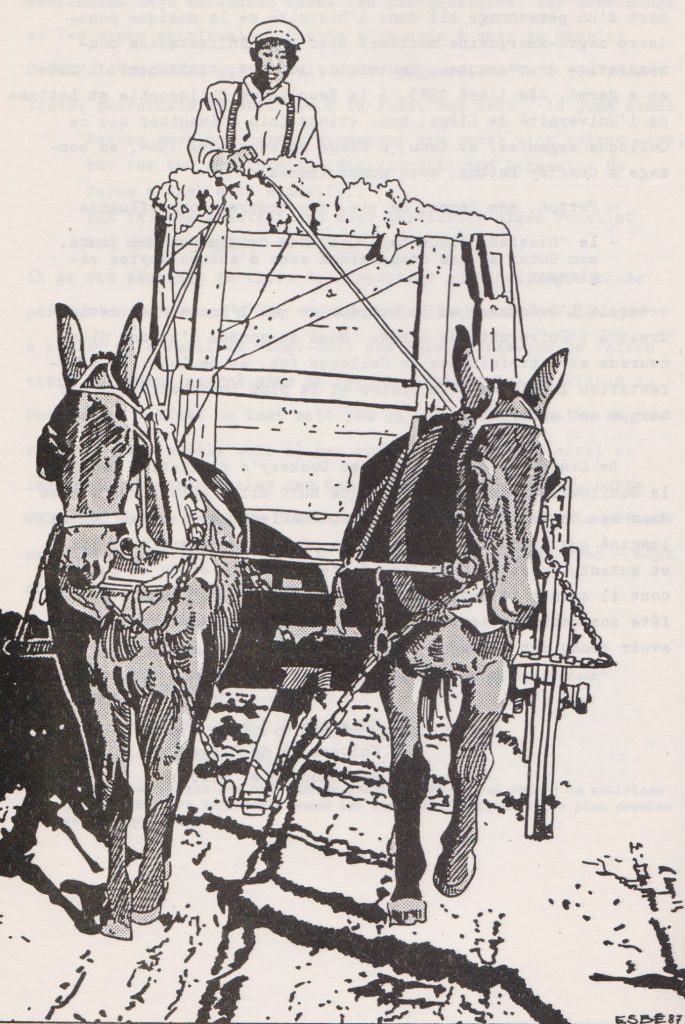Crossing lyrics (I). The Mississippi Sheiks’ “Sittin’ On Top of the World” and Charley Patton’s “Some Summer Day” (1930)

In Charley Patton. Voice of the Mississippi Delta, edited by Robert Sacré at the University Press of Mississippi in 2018, David Evans analyzes Patton’s third recording session which occurred in August 1930 in the Paramount Studio at Grafton, Wisconsin[1]. “He brought with him to the session”, Evans writes, “singer/pianist Louise Johnson, along with ‘Son’ House and his own partner Willie Brown”. The latter accompanied Patton on second guitar on the four sons that were recorded. “Two of Patton’s blues from this session deal with the usul themes of women troubles and travel”: Moon Going Down and Bird Nest Bound. This second song “draws some of its lyric material from an earlier recording by Ardell Bragg, Bird Nest Blues, but Patton greatly transformes the original into a song that expresses a longing for a permanent home”.

Sylvain Basteyns, Patton’s Portrait in The Voice of the Delta. Charley Patton and the Mississippi Blues Traditions. Influences and Comparisons. An International Symposium, edited by Robert Sacré, Presses Universitaires de Liège, 1987, cover. Oupeye, collection Daniel Droixhe et Alice Piette.
Then, Evans writes: “A third song, Some Summer Day (Paramount 13080), also draws its melodic and some ot its lyric materiel from another record, the Mississippi Sheiks’ Sittin’ On Top of the World (OKeh 8785), recorded earlier in the year. It mentions a woman’s man who went off to prison, but the theme’s relation to Patton’s life remains a mystery”.
The Mississippi Sheiks’ Sittin’ On Top of the World was recorded on February 17, 1930 in Shreveport Louisiana, LA, with Walter Vison on vocals, Lonnie Chatmon/Chatman on violin and Armenter “Bo” Chatmon/Chatman as Bo Carter on second guitar (fig. 1)[2]. Charley Patton’s Some Summer Day was recorded in August 1930 in Grafton, WI, with Patton on vocals and guitar[3]. We look first at the lyrics of these two songs (fig. 2).

Fig. 1. – From Illustrated Mississippi Sheiks discography – Stefan Wirz.

Fig. 2. – From Illustrated Charley Patton discography – Stefan Wirz.
| Mississipi Sheiks, Sittin’ On Top of the World, 1930[4] | Charley Patton, Some Summer Day, 1930[5] |
| 1. Was all the summer, and all the fall, just trying to find my little all and all But now she’s gone, I don’t worry I’m sitting on top of the world |
1. It was late last spring, one sad old day Oh when he left you, he’s gone to stay And now Harry’s gone, Sally don’t you worry ‘Cause he’s stealing here some summer day |
| 2. Was in the spring, one summer day Just when she left me, she’s gone to stay But now she’s gone, I don’t worry I’m sitting on top of the world |
2. I’m going to the station, down at the yard Catch me a freight train, ’cause times got hard And now he’s gone, Sally don’t you worry ‘Cause he’s stealing here some summer day |
| 3. Needn’t to come here running, holding up your hand Can get me a woman, quick as you can get a man But now she’s gone, I don’t worry I’m sitting on top of the world |
3. Some got a month, some got a yearTell me darling, lifetime here.But now he’s gone, don’t you worry, ‘Cause he’s stealing here some summer day. |
| 4. It have been days, I didn’t know your name Why should I worry and cry in vain? But now she’s gone, I don’t worry I’m sitting on top of the world |
4. I have seen days, I didn’t know your name Why should I worry, and cry in vain? But now he’s gone, I don’t worry ‘Cause he’s stealing here some summer day |
| 5. Going to the station, down in the yard Gonna get me a freight train, work done got hard But now she’s gone, I don’t worry I’m sitting on top of the world |
5. I’m goin to the station, … Coal and water won’t help you none But now he’s gone, I don’t worry ‘Cause he’s stealing here some summer day |
| 6. The lonesome days, they have gone by Why should you beg me and say goodbye? But now she’s gone, I don’t worry I’m sitting on top of the world |
6. The happy days, they have gone by But you don’t worry, take care or cry But now he’s gone, I don’t worry ‘Cause he’s stealing here some summer day |
| 7. Some got a month, some got a year Tell me Harry, got lifetime here But now he’s gone, I don’t worry ‘Cause he’s stealing here some summer day |
The must visible element of Patton’s borrowing to the Sheiks lies in the seond stanza : we put the similarity of the stanzas in light gray backgound. It is the stanza which is going to be most commonly borrowed ar the beginning of copies of the song. You notice that “one summer day” of the original is replaced by “one sad old day”. But “summer day”, mentioned in Patton’s title, completes and autenticates, so to speak, a reference which remains – textually – in some shadow. Another correspondance is repeated between the Sheiks’ penultimate stanza and Patton’s second one with “Going to the station…”. These last words also open Patton’s fifth stanza, but without a second part of the verse: he perhaps realized that he had already used them and let it go.
Patton’s narrative is quite contradictory. As we transcribed in red characters, he first talks about “Sally” who is worrying because “Harry’ gone” (st. 1-2), In the third stanza, “you” is supposed to refer to this woman as Patton repeats “But now he’s gone”. But, the singer intervenes as he was involved in a personal relationship with Sally: “Tell me darling”. This relationship becomes clear when he sings in the fourth stanza: “But now he’s gone, I don’t worry”. Charley is now taking Harry’s place. The same change occurs in the fifth and the sixth stanzas.
Finally, the narrative vice was in the apple from the start, from the second stanza, when Patton reproduces from the song of the Sheiks “I’m going to the station”, which introduces the personal involvement. The song about a love affair between man and woman – the main blues theme according Son House’s famous interview – may be understood as an homosexual story….
As Patton’s Some Summer Day was recorded in August 1930 in Grafton WI, we may suppose that two others of his recordings were made at a near date in the same place : Bird Nest Bound (L-433-1) and Dry Well Blues (L-429-2)[6]. On these songs Patton is supposed to have been accompanied by Willie Brown (fig. 3).

Fig. 3. – From Illustrated Charley Patton discography – Stefan Wirz.
The site WeenieCampbell has devoted a very interesting analysis of Patton’s Guitar Keys and Positions. The author uses “the remastered Yazoo CDs The Best of Charlie Patton (Yazoo 2069) and Charlie Patton – Primeval Blues, Rags, and Gospels Songs (Yazoo 2074)”, preferred to JSP set, Charley Patton – Complete Recordings 1929-34, because Yazoo CDs feature “speed corrections”. A general statement is that “Patton was actually pretty meticulous about tuning” even if, in his later recordings, “where most of the songs come from, he was tuned a bit flat or a bit sharp on several tunes”. The way Patton obtained some considered tuning is also very valuable. “It’s generally held that Patton wasnt’ using a capo but tuned up one, two or several steps. With some of these songs, one can see how he might have gone through several guitars doing this. (…) For slide tunes, it’s also worth noting he’s likely playing lap-style for most of them”.
From almost sixty recordings made by Patton between 1929 and 1934, Some Summer Day and Bird Nest Bound are, according to WeenieCampbell, the two only songs that are played in Spanish tuning, in A, with a pitch of Bb. It means, for an ordinary player like me, that is the guitar was tuned a little bit higher than the usual open A position (the site calls it “second guitar position”). I reach it with an open G position and a capo on the second fret; the author of the site suggests: “For the tunes in Spanish, I tuned to open G and capoed to A, Bb,B, as needed, though you could easily get away with open A, depending on your guitar”.
Thus, we may think that the tuning of the guitar did not change between Some Summer Day and Bird Nest Bound – and the latters were perhaps recorded on the same session, in the presence of Willie Brown… A larger enquiry could say whether these correspondence could reveal other connections in Patton’s lyrics (cotextual similarities) or in the lyrics from other singers (contextual similarities). As the Mississipi Sheiks’ success was huge, borrowings to the Sheiks should be substantial[7].

Sylvain Basteyns, Design in The Voice of the Delta. Charley Patton and the Mississippi Blues Traditions. Influences and Comparisons. An International Symposium, edited by Robert Sacré, Presses Universitaires de Liège, 1987, p. 10.
[1] David Evans, « David Evans : The Conscience of The Delta », in : Charley Patton. Voici of the Mississippi Delta, edited by Robert Sacré, foreword by William Ferris, Jackson, University Press of Mississippi, 2018, p. 23-137, here, p. 114-115. See Daniel Droixhe, À la mémoire de Robert Sacré, in Elmore D. Blog, February 25, 2024 https://www.elmored.be/a-la-memoire-de-robert-sacre/ . I met David Evans as I co-organized the session « Anthropologie et linguistique » with my Colleague Paul Pierre Gossiaux for the VIth International Congress of Eighteenth Century at the Université Libre de Bruxelles (July 24-31). I invited Eileen Southern (1920-2002, Harvard) and David Evans, who first told me about a photo of Robert Johnson and his « especially long fingers ». David, who is one the best white players of traditional blues, performed in Liège, where Robert Sacré gave lectures for thirty years. A first edition of the volume Charley Patton. Voici of the Mississippi Delta was published by the Presses Universitaires de Liège in 1987 with a nice cover and other drawings by Sylvain Basteyns, which could have been kept in the 2018 edition.
[2] https://www.wirz.de/music/missheiks.htm
[3] https://www.wirz.de/music/patton.htm
[4] https://weeniecampbell.com/wiki/index.php?title=Sitting_on_Top_of_the_World.
[5] https://www.google.com/search?q=Charley+Patton+Some+summer+day+lyrics&sca_esv=b81c0bacdd322bb3&sca_upv=1&rlz=1C1PNJJ_frBE929BE929&sxsrf=ADLYWILHqar94wADLxM1ciYxZKtDfca-Jg%3A1721138558547&ei=fn2WZtyGIYmRhbIPrtaY6Ak&ved=0ahUKEwjcvZDj3KuHAxWJSEEAHS4rBp0Q4dUDCA8&uact=5&oq=Charley+Patton+Some+summer+day+lyrics&gs_lp=Egxnd3Mtd2l6LXNlcnAiJUNoYXJsZXkgUGF0dG9uIFNvbWUgc3VtbWVyIGRheSB seXJpY3MyBBAjGCdIgR5QoglYoA5wAXgAkAEAmAFnoAGaAqoBAzEuMrgBA8gBAPgBAZgCAqAC1wGYAwCIBgGSBwMwLjKgB8gG&sclient=gws-wiz-serp
[6] https://www.wirz.de/music/patton.htm
[7] See my article « Texte, cotexte et contexte chez Blind Lemon Jefferson (I). Long Lonesome Blues et Got The Blues (mars-mai 1926) », to appear in ABS Magazine.

